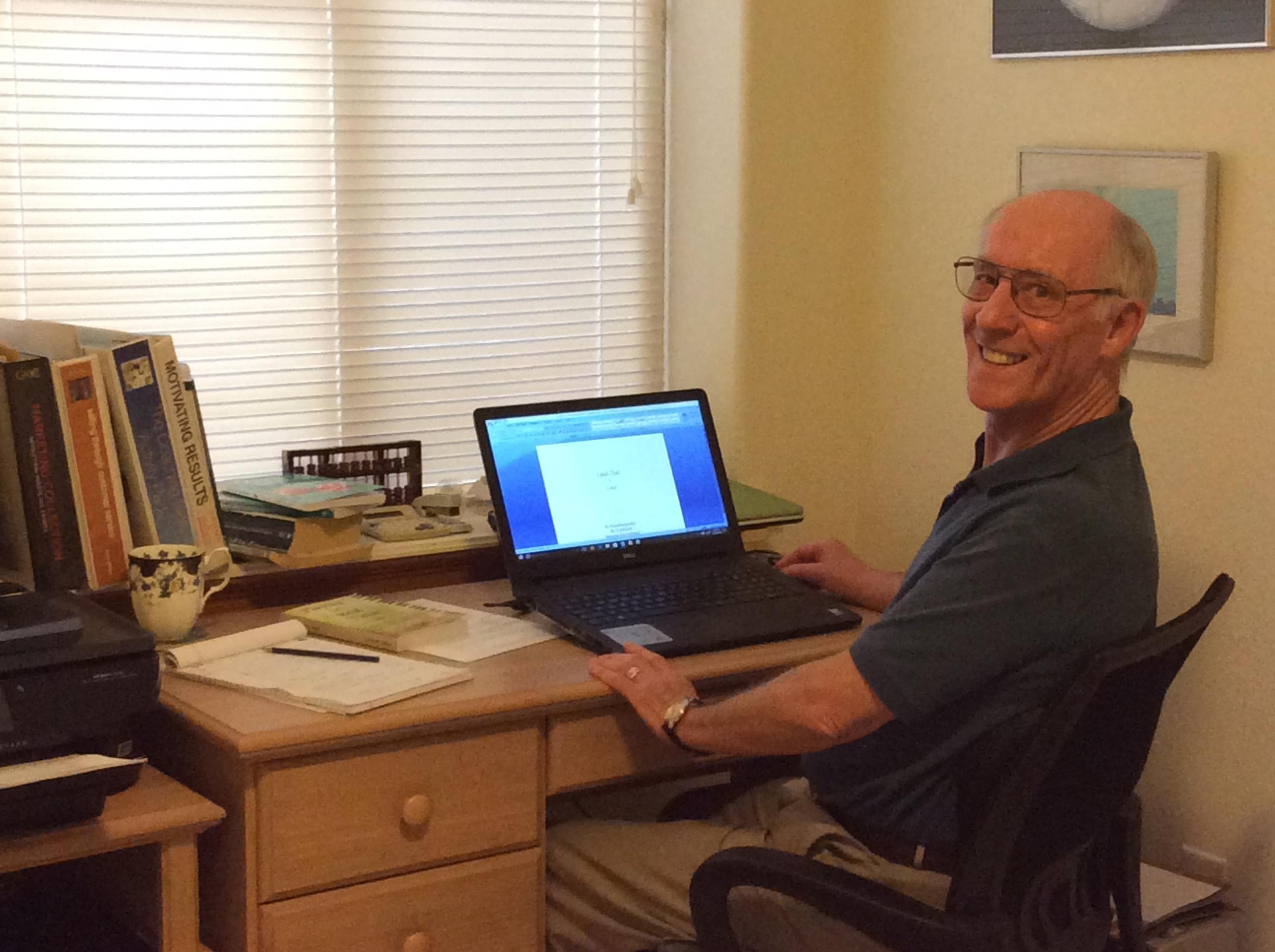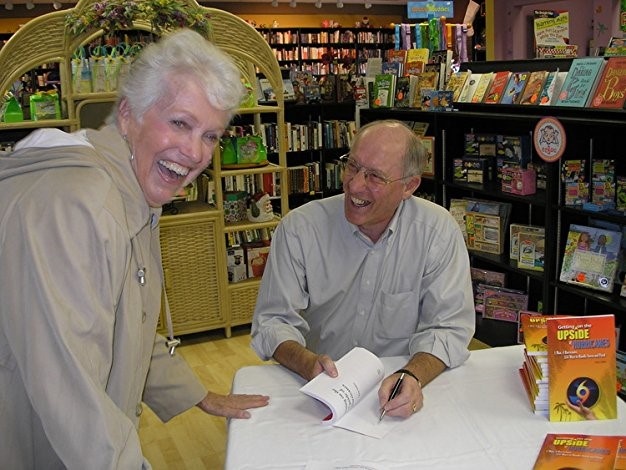For our first freelance writer spotlight of 2017, we’ve chosen to honor Tony Gillen, a longtime Verblio writer and international man of mystery (OK, that’s just speculation).
Tony is not only a joy to work with here at Verblio; he is also a published author of books on history, business tactics, and even surviving hurricanes. While history is his passion, Tony writes compelling and fascinating articles on subjects that might scare off other writers; he crafts topics such as international real estate law, business consulting, and marketing initiatives into readable, shareable blog posts. Check out Tony’s books and other work here.
As part of the Verblio community, Tony is well known for his sense of humor, especially for his limericks, which he sometimes shares on our writer forum. Read on for some of Tony’s signature wit, as well as some wisdom from a writer who has made a living from doing what he loves.
Note: This spotlight was conducted in Verblio’s past life, where its former identity was BlogMutt. We’ve left the interview as-is to preserve its authenticity.

Tony in his natural habitat: at the writing desk.
1. How did you get started as a writer?
Tony: I began by writing training programs, feature sheets, articles and so on for clients back in 1980. That morphed into developing training programs in my own name and then to writing my own books.
Additionally, I would write lengthy letters to my children about my life as an international courier, conversations with my dog, and other stuff I would just make up. I decided I liked to write, and if I ever got the time, I would do so. Now I have the time, and was lucky enough to find BlogMutt.
2. Do you have any tips for beginning freelance writers?
Choose an audience—real or make-believe—choose something you are interested in, and write. When you get your buoyancy just keep going, keep improving, look for outlets and submit your material.
Everyone I know, from professional writers and skilled tradesmen to Olympic athletes and business owners, began by doing something they liked and were fairly good at. They started, improved, got serious, and succeeded.
Few people start off being very good at anything—how many times did you fall down learning to walk? But didn’t your life change after you became good enough? I can walk, but I lack the physical abilities to win medals. That never stopped me from enjoying a good walk in the countryside. The same goes for writing; I will never win a Pulitzer, but enough people like what I do, and I love doing it.
In my opinion, if anyone wants to write, they should sit down and write. They should also read what others write, so they can learn and improve.
3. What’s your favorite subject to write about?
History. Many years ago I came across two famous quotes. They captured my attention and my imagination. Herodotus said,
Very few things happen at the right time, and the rest do not happen at all; the conscientious historian will work to correct these defects.
(I love correcting other people’s defects).
The other is by G. M. Trevelyan who said,
History is not a subject at all, but a house in which all other subjects dwell.
The bolt was loosed! I became a historian (but only in my spare time).
4. What is your strategy for writing about subjects in which you are not an expert?
By the time you get to 70, you know a fair bit about quite a lot, so I rarely start from scratch when it comes to research. I do, however, avoid topics where I believe others are expert and I’m a novice; anything medical being a perfect example.
That said, whether it’s a new client or a new subject area, I begin with the client’s website, so I can get a feel for what they currently do and, therefore, might want. Then I go to government agencies, professional bodies and other authoritative sites to learn enough for me to begin writing.
5. Do you write for fun? If so, what do you write?
History mainly—it being a house in which all other subjects dwell, and since a lot of history is just flat-out wrong (see Herodotus), I have a lot to correct. 😉
Land That I Love is my second history book, and is something I continue to add to—the next two chapters will be in it later this year. I also have friends in non-English-speaking countries who ask me to both correct their work, and to help them with projects, so I get to write about cultural issues, teaching practice, and so on.

Tony at a book signing for Getting on the Upside of Hurricanes.
6. What is your favorite quote or piece of advice about writing?
The alchemist’s dream is to change base metals into gold; the writer’s mission is to have the same effect on simple words. -Dr. Robert Wormell
Editor’s Note: Tony explained to me that this quote came from a teacher in his “general science” course (Tony went to school in England, so this was during his ‘A level’ years). Dr. Wormell was not only a retired theoretical physicist, but also held Ph.Ds in chemistry and general physics.
May we all be so lucky to have such teachers—especially science teachers who understand how to win over the hearts of writers.
7. What is your favorite book?
Land That I Love, [by Tony Gillen, of course!]. But I read history books all the time.
My favorite novel is The Count of Monte Cristo—the Robin Buss translation. It is the most compelling story ever written. It’s based on a real-life event and has a lot of real history and imaginative mystery woven into it. Unfortunately, it was bowdlerized until it became unrecognizable. Then Mr. Buss came along and re-translated it direct from Dumas’s original.
I also love Les Miserables and A Tale of Two Cities. My favorite modern novel is Playing in Real Time (and not just because my daughter wrote it; I’ve read it three times).
8. What does a typical writing day look like for you? Do you have a schedule, set goals, etc.?
I gave up schedules quite some time ago, really. Now, I sort of emulate the Duke of Wellington’s approach when he said “I merely resolved to do the business of the day within the day.”
The ACED coaching model is sort of innate, now, so goals and schedules are very much internalized.
I am an early riser, and usually begin with a walk, and then I see what the rest of the world wants me for. I either work with overseas clients or get in some BlogMutt work in the morning, followed by a few hours of domestic bliss (a.k.a. cooking, cleaning, and ironing), then more BlogMutt or other client work, then my “for fun” list.
I still have a few clients who want me to coach them, either on an ongoing basis or just for a specific project. Those sessions are scheduled of course. And then it’s time for tea.
I rarely work in the evenings.
9. What is one thing about you that we might find surprising?
I hold three passports. When I go on vacation I pretend to be Jason Bourne (he pretends to be me when he’s driving).
10. You always have a great sense of humor on the forum. Do you have a favorite joke or limerick to share?
I’d like to wish everyone a happy and prosperous 2017. Personally, I’m still going through my mid-life Christmas.
“There was a young man from Burt’s Bees,
Who was stung on the arm by a wasp.
When asked if it hurt,
He said “Yes it does,
It’s a good thing it wasn’t a yellow jacket.”
What’s black and white, and eats like a horse?
A zebra!
Thank you so much to Tony for tolerating all of my questions, and for being such a wonderful part of our writer community. We’re so glad to have you!



